#Lexus
See Anything You Like? Next-generation Lexus IS Looms
I must make a confession. Of all the vehicles on the market today — a diverse crowd if there ever was one — no car’s rear end annoys me more than that of the Lexus IS.
The brand’s sporty compact offering went in a controversial direction for its third generation, entering the 2014 model year with half-melted ice cream cone styling. Seems the taillights suffered worst from the heat, as the red plastic managed to bleed nearly all the way down to the rear wheel well. And the first-gen was so clean!
For Gen 4, it seems Lexus is prepared to correct this mistake.
Slashed Rates Factor High in Premium Push
As you read last week, the U.S. auto industry continues its climb out of the coronavirus ditch, with foreign automakers pushing back at a briefly dominant Detroit in a bid to restore sales sanity.
The domestic three managed to unload an awful lot of big-margin trucks during the lockdown, propelling scared customers into dealers with zero-interest financing on long-term loans. Detroit’s rivals have now fully caught on, fighting back with their own offers. For Lexus, the new proposal to buyers doesn’t even end at the new-car lot.
Toyota Yaris Cross Rumored to Underpin Diminutive Lexus by 2023
Lexus hasn’t been quiet about its need for crossovers. The brand went into the fad (it can’t last forever) underprepared with a fleet largely comprised of sedans; now it’s rumored to be developing a sub-$30,000 product following the launch of its subcompact UX model.
While a little surprising that Toyota’s luxury arm would pursue such a modestly priced vehicle, especially since it previously said cheap cars were a nonstarter, itty-bitty crossovers are in fashion right these days— and probably a good way to increase sales volume in select markets. Such a car would also give Lexus an opportunity add another model with a smaller-than-average carbon footprint, pleasing government regulators.
Serving as the basis for this hypothetical model will be the Toyota Yaris Cross. The Lexus allegedly carries the BX name and will serve as an unlikely candidate for the North American landscape. It may, however, see action in Europe and Asia if the manufacturer decides to pull the trigger.
QOTD: The Right Idea, the Wrong Execution?
Today’s QOTD is about past vehicles that just weren’t quite right. Perhaps a manufacturer intended to make the sort of vehicle you might actually want in your driveway. And they got the styling just right, but the materials and build quality were terrible? Maybe the mechanics and trim were just right, but the end vehicle was so hideous you had to look away in horror? Let’s talk about the multiple times OEMs ended up with a proverbial fly in the product ointment.
Something Wicked This Way Dies: Lexus GS Lined Up for Execution, Gasps Out a Final Special Edition
That a print advertisement can still remain (near) top of mind two decades later speaks to the power of marketing, and maybe a little to the vehicle behind that famous ad: the Lexus GS.
After announcing a limited run of 2020 Lexus GS 350 F Sport Black Line Special Edition — a vehicle the brand calls the “best ever” GS, the automaker admitted that this is it for the model. The GS, which added a modicum of muscle to Lexus’ image back in the 90s, won’t live beyond the summer.
U.S. Trademarks Show Hybrid, PHEV Bound for Next-gen Lexus NX
Overseas trademark applications are nice, but the significant differences between those markets and our own often make such appearances a harbinger of not much. Europe is far more likely to go green, while American buyers, depending on state, don’t see nearly as much punishment for choosing the least efficient models.
Less taxation and far cheaper fuel conspire with geographical and cultural realities to make green cars a tough sell stateside, even a decade after things really kicked off in earnest.
Which is why the recent appearance of a plug-in hybrid in trademark filings an ocean away were worthy of interest, but no guarantee of U.S. availability. Until now.
Due for a Revamp, Lexus NX Hints at V6 Power
With a new Lexus NX compact crossover expected to arrive next year, trademark applications on both sides of the Atlantic point to increased powertrain diversity — and more available power for U.S. customers.
Overseas, at least, the little Lexus (but not the littlest Lexus) CUV stands to go even greener.
Global Pandemic May Hit Luxury Brands the Hardest
Mercedes-Benz got out in front of BMW while automotive sales languish in the gutter, though neither company finds itself resting comfortably upon a bed of roses. The global pandemic has made sure of that; no segment has gone unaffected by social distancing measures, but it may be the luxury divisions that have it the hardest moving forward.
Up until recently, premium nameplates had done rather well — scooping up an increasing share of the total auto market for years. While the Great Recession momentarily suppressed their ascension in 2008 and 2009, it was a temporary setback.
Luxury brands have had a good decade overall, with any rough years being offset by expansions in their lineup (chiefly crossover vehicles). Now they’re trying to move downmarket to capitalize on younger customers with a bit more pocket money. It might have been a good strategy, were it not for the coronavirus outbreak and subsequent economic downturn.
Leaked: Toyota Product Timeline, Other Juicy Tidbits
Here’s a change of pace: something to look forward to! In this instance, it’s a bevy of Toyota products poised to spring forth after this virus thing shuffles beneath the banner of “bad memory.”
The brand that’s shown no shortage of initiative in recent years plans to continue its new product flow, this time focusing more on trucks than cars.
Toyota Was Way Off-target With Its Sales Forecast for the Fifth-generation Lexus LS
Over the course of three decades, Lexus has accomplished remarkable feats in the U.S. marketplace. While the modern luxury landscape proves how challenging it is for a (non-Tesla) upstart such as Genesis to garner even an ounce of market share, Toyota’s premium brand generated relatively high volume levels from the get-go.
By 1991, only the third year on the market, Lexus had already overtaken all other import premium brands. By 1998, Lexus was able to top monthly luxury sales leaderboards. Then in 2000, Lexus became America’s top-selling premium marque. The Lexus LS, the brand’s flagship sedan, was an especially important piece of the puzzle in those early days. In fact, when Lexus first outsold Mercedes-Benz and BMW on an annual basis, the LS was one of just three Lexus nameplates. Nearly 43,000 copies of the LS were sold in 1990, for example, at a time when BMW’s 7 Series did just a quarter of that volume; and with Mercedes-Benz some 17,000 units abaft.
But as the LS gained license to move upmarket, as the Great Recession came and went, as the tastes of luxury car buyers became the tastes of luxury SUV buyers, the LS became something of a forgotten flagship. By the end of the fourth-generation LS’s tenure, Lexus was selling barely more than 300 LSs per month in America.
Yet with the launch of a new model in 2018, Lexus intended to dramatically increase the U.S. sales volume for its biggest and most costly sedan. And if at first it looked as though Lexus might just have forecasted accurately, a second glance reveals just how far off the mark even Lexus can be.
Fuel Pump Issue Forces Toyota to Recall Almost 700,000 Vehicles
Toyota has announced the recall of 696,000 vehicles in the United States due to safety concerns caused by a suspect fuel pump. The manufacturer said affected vehicles are equipped with a pump which may stop operating, asking customers to be on the lookout for warning lights and a rough running engine.
Impacted autos run the risk of stalling, with an inability to restart the vehicle if the fuel pump fails entirely.
Kentucky Kicks Off Production of Toyota RAV4 Hybrid
Toyota Motor Manufacturing Kentucky (TMMK) has announced the start of production of the new RAV4, the best selling vehicle in America that isn’t a pickup. Officially, TMMK is handling the hybrid version while other sites — like Toyota Motor Manufacturing Canada (TMMC) — takes care of the non-hybridized crossover.
Considering the RAV4 Hybrid just had its best sales year on record, moving 92,525 units in 2019, Toyota’s probably feeling pretty good about its decision. Total U.S. deliveries of the RAV4 hit 448,068 last year, marking another sales record for the brand. The redesigned models (introduced late in 2018) are already everywhere, making one grateful that they don’t necessitate the same cordial acknowledgement expected from motorcyclists and Jeep Wrangler owners. Your arm would be exhausted before making it out of the driveway.
The French (Canadian) Connection: Cops Put Kibosh on Toyota-loving Theft Ring
A Grinch-like presence that haunted the driveways and dealerships of Eastern and Southern Ontario for much of the year has finally met the long arm of the law. Sadly for owners, a great number of mostly Toyota-built vehicles have already found new homes on the other side of the Atlantic.
What Slump? Toyota Ekes Out Its Best November to Date
While U.S. auto sales are expected to slump further this year, continuing a trend in the industry, certain products seem impervious to market pressures. Take the Toyota Tacoma, for example. Hardly the newest kid on the block, the Tacoma nonetheless manages to consistently retain buyers while capturing new ones.
Like its parent company, the Tacoma just posted its best-ever November sales month. And wouldn’t you know it — early results are in, and the new Corolla seems to be a hit.
Lexus' First EV Won't Break the Internet
Lexus’ first production electric vehicle carries a name that should spur fond memories of a boxy Mercedes-Benz sedan. Yes, the 300E was a desirable German car. Even today, the E 300e is a compelling electrified midsize alternative to those other sedans on the market.
But we’re not here to talk about Mercedes-Benz, even though it’s hard not to when you name a new vehicle the 300e. In this case, it’s the Lexus UX 300e… and it’s not for you, as Corey would say.



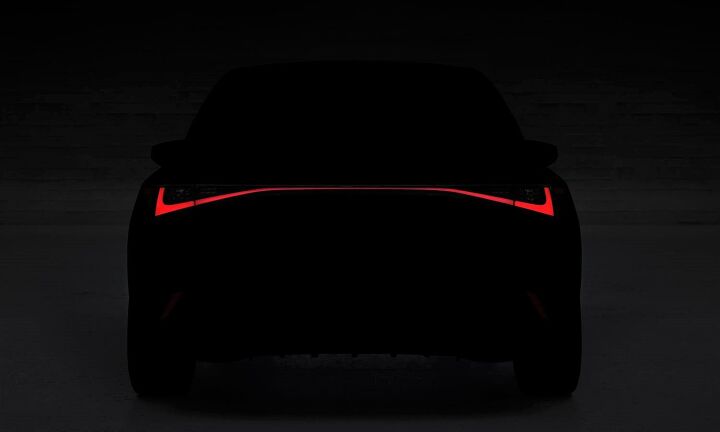







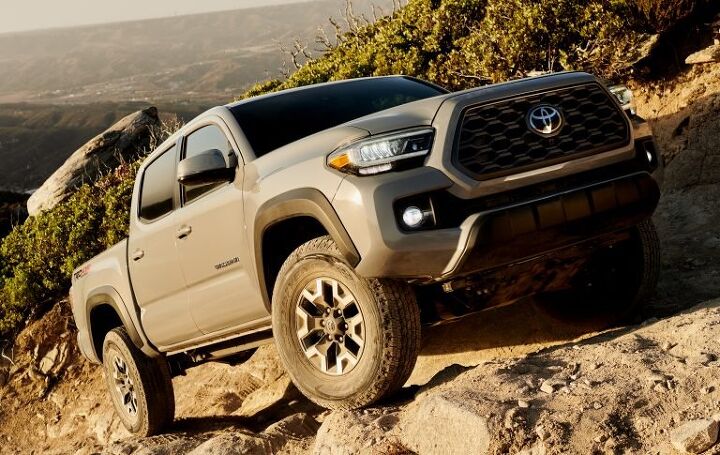

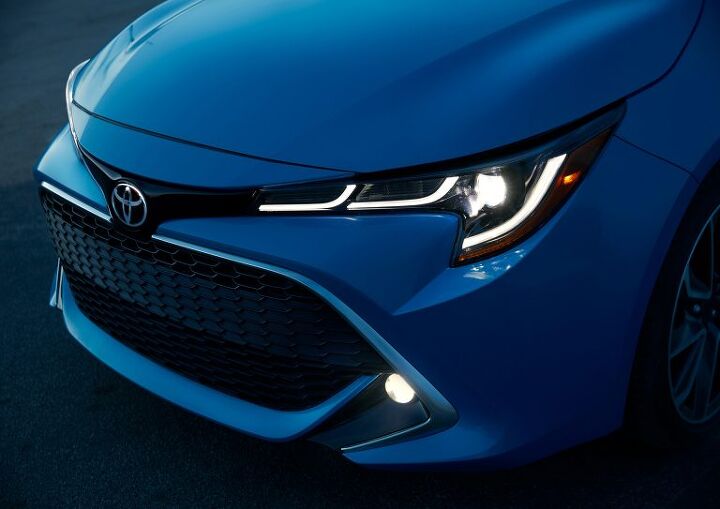
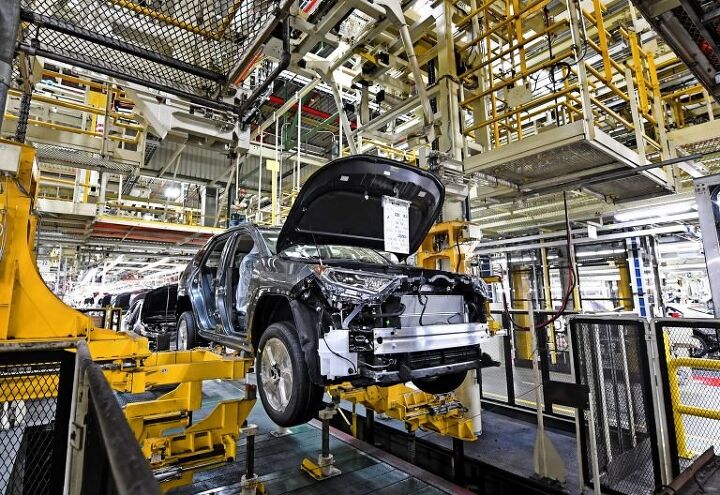


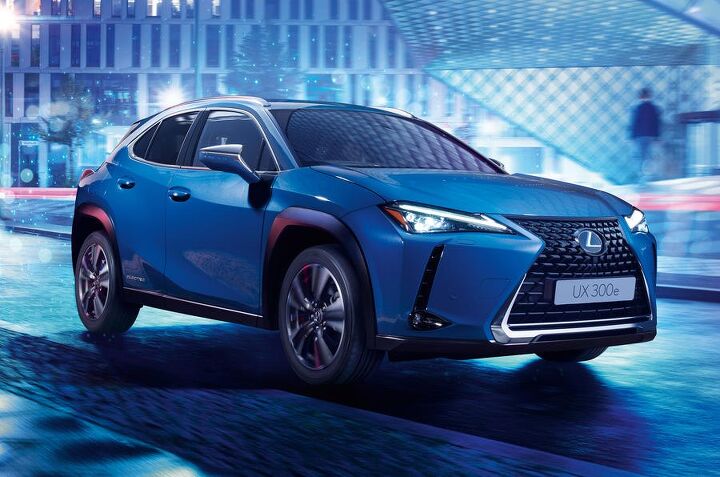












Recent Comments